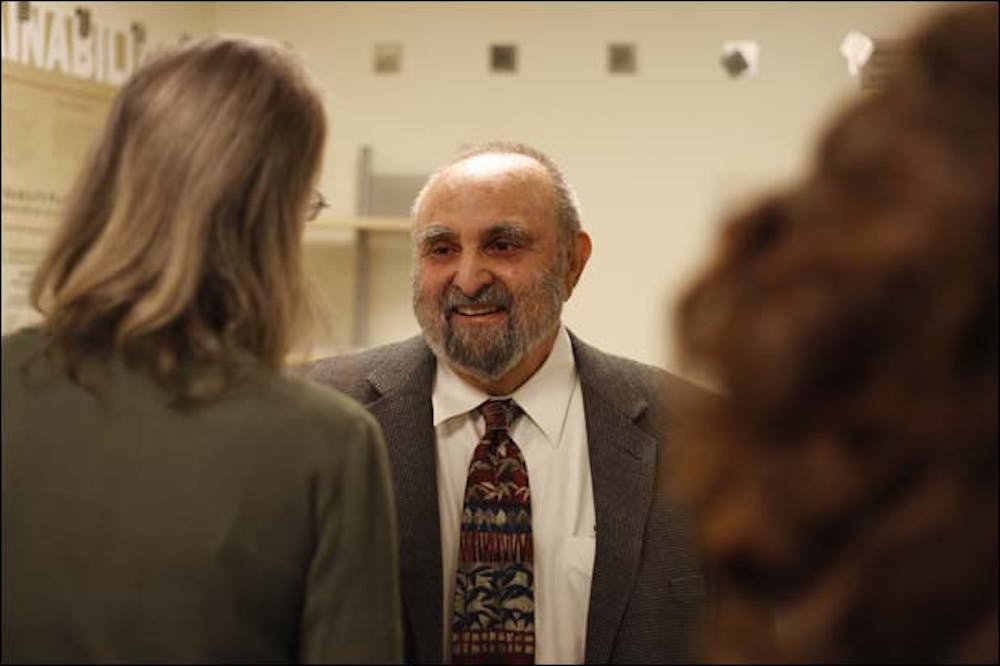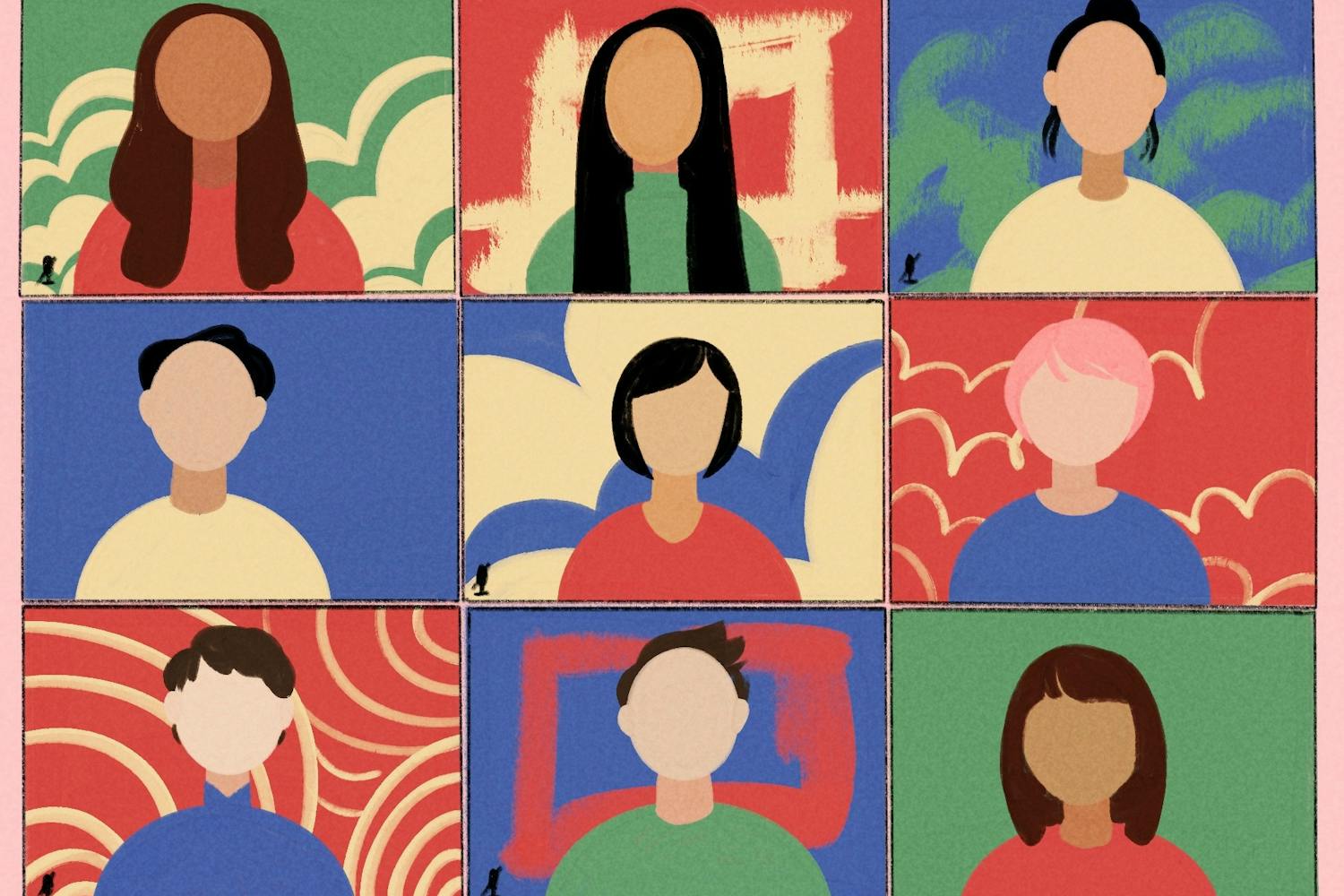Practicing art can solve many modern global issues, including the environmental crisis, said Mark Reader, an emeritus professor of political science on the Tempe campus Wednesday.
Reader delivered a lecture titled “The Aesthetic Experience and the Environmental Crisis,” and received the 2009 Praxis Award from the College of Public Programs for contributing art to the school’s new facility on the Downtown campus.
Debra Friedman, dean of the College of Public Programs, said students and faculty who see the retired professor’s art are surprised and impressed.
“Mark is interesting because if you see his art, you will see that it has a very powerful, serene quality to it,” she said. “People say, ‘That can’t be Professor Reader from political science.’”
His arts background gives him a unique perspective that is lacking in the environmental discussion, Reader said.
“We’re going to need to have an aesthetic point of view and experience in order to get through what has been called a crisis of survival,” he said.
The arts are not limited to traditional artistic expression, like painting and music, Reader said.
“We must embrace … the points of science and the arts of medicine in which doctors today are trying to notice patients and notice where they are in the world,” he said.
Reader said his idea of art also encompasses the daily rituals like cooking, sewing and planting flowers.
“I’m not talking about a given art to start with,” he said. “What I’m talking about is the aesthetic experience.”
Those experiences, Reader said, involve the artists’ bodies, their communities and their processes of transformation.
“You’re not involved in ignoring the subject matter,” he said. “You’re not trying to dominate or destroy it.”
These same methods that transform the artist can be used to create solutions to practical dilemmas, he said.
“What we need to do is enter into much more friendly relationships with the people and the planet and much more friendly ways of producing wealth,” he said.
“That is best and most easily done if we educate each other … not in techniques, not in long-distance learning, but in the spirit of aesthetics and the arts,” he said.
Reader said reinventing education to promote art, labor and community — as opposed to technology — can help society move from a consumer economy to a conserver economy.
“We have to revalue many more hands-on activities,” he said. “We can re-skill each other best by teaching each other the arts.”
John Harlow, a graduate student in the School of Sustainability, said Reader provides a unique and valuable perspective.
“His talk was in a different dimension than what you normally see,” Harlow said. “While listening to him, I wasn’t thinking. I was just remembering a lot of the lessons I’ve learned about working from my body instead of from my mind.”
Reach the reporter at jessica.testa@asu.edu.




